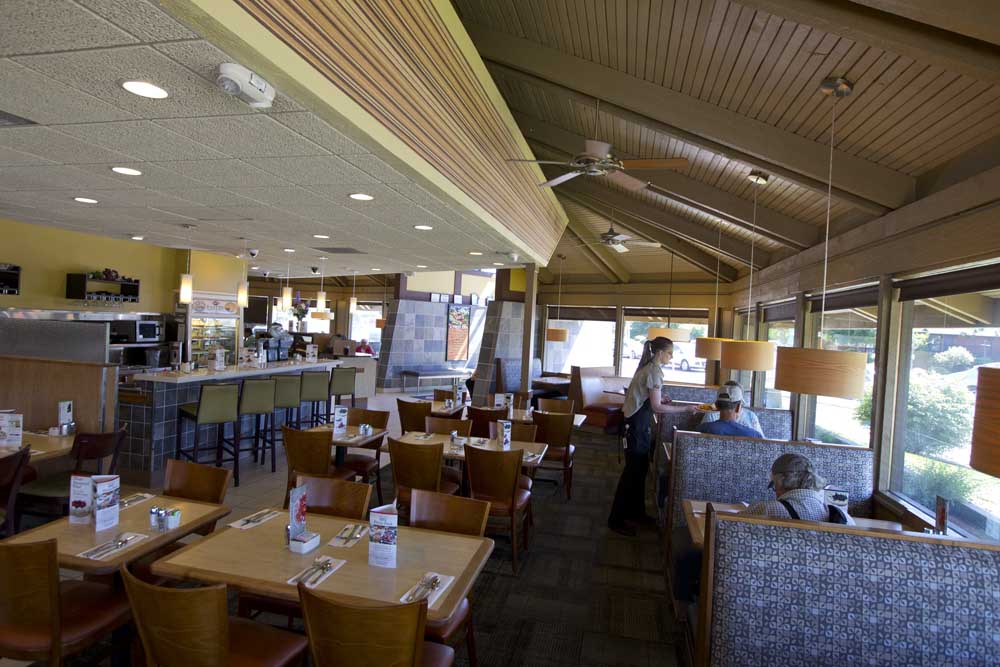Bad teeth in Oregon kids a cause for concern
Published 5:00 am Thursday, April 24, 2008

- Bad teeth in Oregon kids a cause for concern
Researchers who looked at the dental health of Oregon elementary school children last year were shocked by what they found.
“Things were worsening,” said Dr. Gordon Empey, dental health consultant to the state’s Oral Health Program and an author of the study. “We just didn’t anticipate that.”
Empey and his colleagues screened first-, second- and third-graders and found that nearly two-thirds had already had a cavity and 35 percent needed dental treatment. There was also a dramatic increase in the number of children with untreated tooth decay.
While there has been a national increase in the number of preschool children with tooth decay, the teeth of Oregon’s kids look worse than in most states. “Of the 32 states with similar reporting methods,” the researchers wrote, “Oregon ranks 25th, or seventh from the bottom, in the percent of children with untreated decay.”
Here in Central Oregon, the problem may be even greater. Nearly half the kids in a region that includes Deschutes and Jefferson counties as well as counties along the Columbia River have untreated dental decay and an equal number have not seen a dentist for at least a year.
Terri Rich, a nurse with the Crook County School District, sees these statistics firsthand. “I have a stack of students that are just in line to see the dentist.” The problem, she said, “is just unbelievable.”
There are several prevention programs here, most of which target preschool or elementary-age children. Still, dentists and public health experts say there’s no easy answer or solution to the problem of unhealthy teeth.
Lots of dentists
Ironically, Central Oregon has a relative glut of dentists, especially for children. “We have nine pediatric dentists,” said Mike Shircliff, a dentist in Redmond and owner of Advantage Insurance. “That’s a lot.”
In Lane County, which has nearly 150,000 more people than Deschutes, Jefferson and Crook counties combined, there are seven pediatric dentists, according to the American Academy of Pediatric Dentists.
The problem, said Shircliff, is not the number of dentists but the cost of going to them. “It’s like everything else; Central Oregon has a great disparity. If you can afford a house here you can get a great one, but if you can’t, then you can’t. It’s the exact same issue.”
Some parents use the Oregon Health Plan, but there are few dentists who accept that plan, especially in smaller local towns.
“We just recently had a dentist (begin to) see Oregon Health Plan patients,” said Rich, who works mainly in Prineville. “For those particular students, they have had to go out of town to get dental care.”
“We have kids who have never been to the dentist ever,” said Rich. “So they have so much decay they need thousands of dollars in work,” said Rich.
Dental decay causes other problems. Children with cavities cannot chew as well, often have pain and, even when the decay is in their baby teeth, their mouths can be permanently damaged. They miss days of school because of pain and swelling or don’t eat enough food because they cannot chew it.
Rosa Sanchez’s 5-year-old daughter Lupita had to have both of her front teeth rebuilt after they rotted almost all the way down to the gums. Lupita, who goes to school in Prineville, had trouble eating, her mother said through a translator, and missed several days of kindergarten because her mouth hurt so badly.
Her teeth were rebuilt by Tony Ramos, a dentist who volunteers his time on Medical Teams International’s dental van in Crook County, which treats kids at schools for free or very low cost every couple of months.
Another cause of kids’ problems is that very few people in Central Oregon drink fluoridated water because the municipal water supplies do not include the chemical. The debate over fluoridation has been particularly heated in Oregon; Portland is the largest city in the United States that does not fluoridate its water. Opponents say the chemical’s safety record is unproven; dentists argue it could protect our teeth.
“What you find in those areas (with fluoridation) is a lot fewer children with early dental caries (cavities),” said Mike Delaney, a pediatric dentist in Bend and Redmond. “You don’t see nearly the damage done to the primary teeth in a community with communal water fluoridation.”
Teaching parents
Preventing cavities is a partnership with parents, dentists say, many of whom need more education. Many parents tell him that baby teeth don’t matter, said Shircliff, though in fact they can affect the later formation of adult teeth as well as cause pain for the child.
Though her four older children never had dental problems, Terri Jefferies, who lives in Tumalo, said that her two youngest have had many issues, including cavities and rotten teeth. She had been strict about brushing and flossing, she said, but wasn’t prepared for the amount of time the kids spent in the dentist’s chair. With the older kids, she said, “we just never really went to dentist’s. Everybody was just fine.” Then, when the younger two came along, “all of a sudden I’ve been enlightened.”
Parents, say dentists, need to make sure their children are brushing their teeth and eating a healthy diet. And, because the bacteria that cause cavities can be passed from one mouth to another, parents need to get their own mouths checked as well.
Some of the problem, too, may just be that people don’t understand why they need to take care of their teeth. The state is now trying to raise awareness of dental health issues and trying to get people to connect it to their overall health, said Empey. “We believe that people don’t know how important oral health is.”
Dental guidance
Need help getting your kids dental care? Local schools or the following organizations might be able to help:
•Family Access Network, advocates in schools, familyaccessnetwork.org; refers patients to Kemple Memorial Children’s Dental Clinic, among others.
•Healthy Beginnings, screenings for all children, selected dates, 383-6357
•Deschutes County Health Department, dental care for children on WIC, 322-7400.
•Advantage Smiles for Kids, dental care for at-risk, low-income children, Redmond, 504-3911.
•Ochoco Community Clinic, Prineville, Bend, Madras, Redmond, 447-0707.






